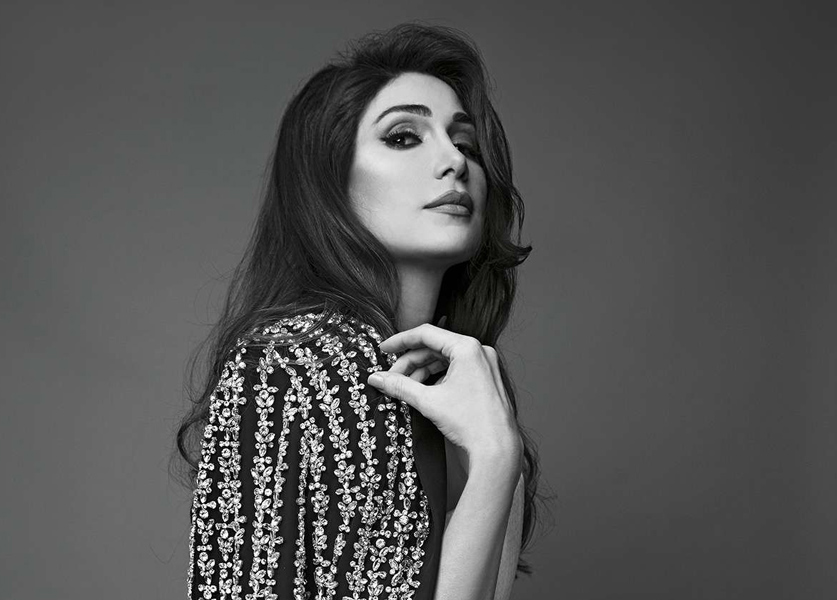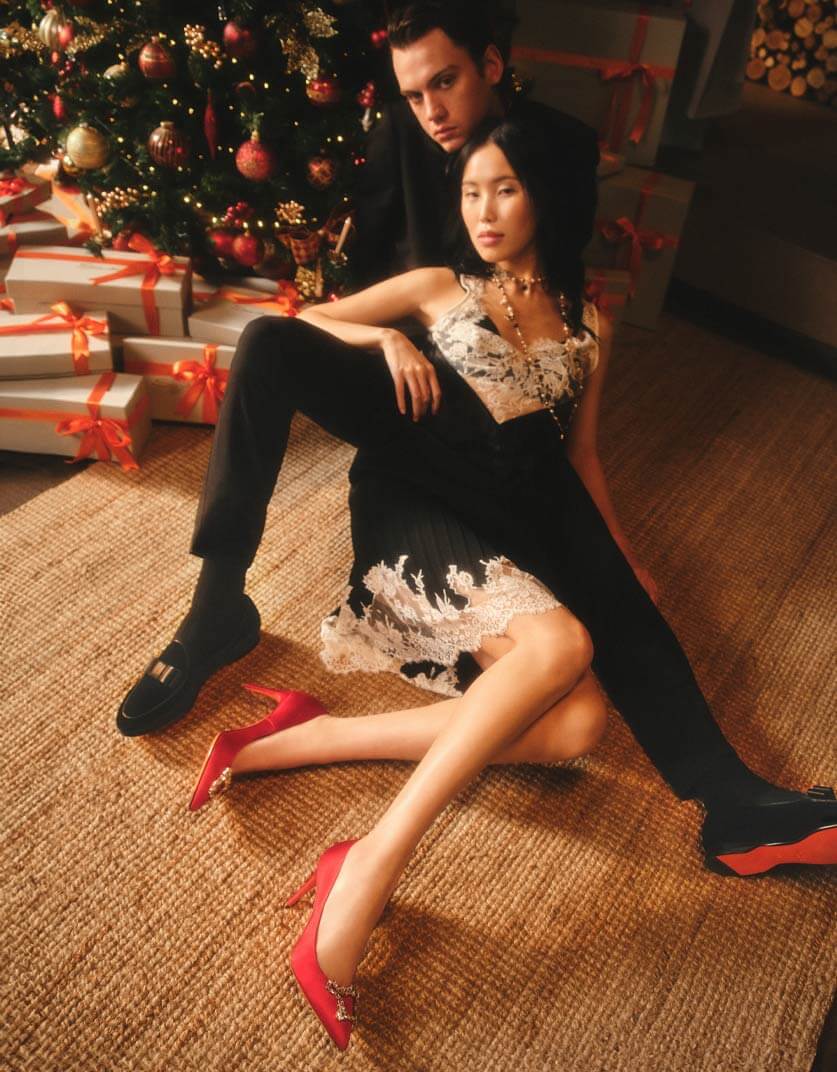Celebrity
Dima Sadek: This is why I left LBCI
Hanane Tabet
5-February-2020

An unfailing strength and a serene calm in the midst of verbal abuse and threatening. Her mannequin silhouette and passion for fashion couldn’t hide the fact that she’s politically and socially engaged. This exploding combination, points the finger at Dima Sadek. For this matter, the journalist took the chance to play dress-up and pose for photos, wearing Ali Younes’ dreamy gowns.
Who is Dima Sadek?
First things first, I am a mother of two amazing daughters. Second, I am simply a woman. A woman who is passionate about: her career as journalist, politics, culture, art, and activism. I believe that an emancipated feminist woman must not sacrifice her feminity. A feminist should not give up her beauty; in fact, being a feminist is being a woman. She can take care of her physical appearance while fighting for her woman rights and equality at the same time. Beauty is crucial in a woman’s identity, in my opinion.
Describe your typical day
When I was working at LBCI (Lebanese Broadcasting Channel International), my days were hard, especially that I used to get stuck in the usual traffic jam every morning, noting that I live far from LBC’s studios. Thus, I get up early in the morning to spend some time with my daughters before they go to school. Then, my day is usually divided between my work and my social, family life.
At this moment, I am a freelancer, so I am able to manage my time effectively, and I am preparing several documentaries related to the Lebanese uprising which broke out last October. Therefore, I am either filming or following up closely on the events. However, I can’t deny that this is affecting my family life a little bit, that’s why I have the feeling of guilt that hits a lot of working mothers, which leaves me with a heavy heart.

Why did you quit from LBCI?
I see this revolution with a lot of passion and react accordingly. LBCI aimed to muzzle this passion, and I totally understand their point of view, especially that my reactions were overrated sometimes. This contradiction between my own convictions and LBCI’s interest is so obvious, thus I’ve quit.
Why do you think you are heavily criticized?
First, because I am activist and feminist, politically engaged, and paying a close attention to my physical appearance along with a sense of fashion. I understand that this is hard for my opponents to accept, and it would sound contradictory to them, but not for me. I repeat: you can be both feminist and feminine. One does not exclude the other. Second, my defended ideas are hostile to my environment and community, thus they attack me the most.

What’s the reason behind all this violent criticism?
Because I attack quite violently the great political figures, which is considered sacred by my community.
How do you face this hatred?
This might sound hard to believe, but frankly, this hatred has never affected me, because the allegations brought against me, are devoid of any truth. For instance, they accused me of colluding with Israel, which is totally not true, and they know it for sure. However, they do it out of frustration, because they have no evidence against me. It reflects their lack of knowledge. In my opinion, Verbal abuse is a sign of weakness; therefore, the hatred has never affected me.
What are the things you find unbearable in the others?
I tend to be tolerant and accept everything in the others, except racism. It is a red flag for me. Unfortunately, we hear racist speeches the most in Lebanon.
What are your next projects?
I am working on several documentaries. The first one, which I’m quite proud of, is a documentary about the poor abandoned neighborhood of Khandak el-Ghamik. It will be broadcasted soon. We shot it under particularly difficult conditions, where I had to conduct the interviews in an irregular manner, but I made the young people, who attacked the protestors, speak out.

Recommended

Oscars 2025 Red Carpet: The Most Stunning Celebrity Looks
3-March-2025

Daddy Cool’s Kitchen Brings a Bold Twist to Iraqi Cuisine
6-February-2025

Zuhair Murad Receives Honorary Award at Joy Awards 2025
20-January-2025
Most read
-
1
Alo Yoga Launches in Lebanon with Grand Opening at Beirut Souks
-
2
العد التنازلي لانطلاق منتدى الجمال والصحة النفسية والجسدية بدأ!
-
3
CHANEL Sublimage Le Sérum
-
4
The EMIGALA Fashion & Beauty Awards Announces its Fifth Edition
-
5
Maya Nassar Maalouf to Represent Lebanon at Ms. Universe World International 2025





